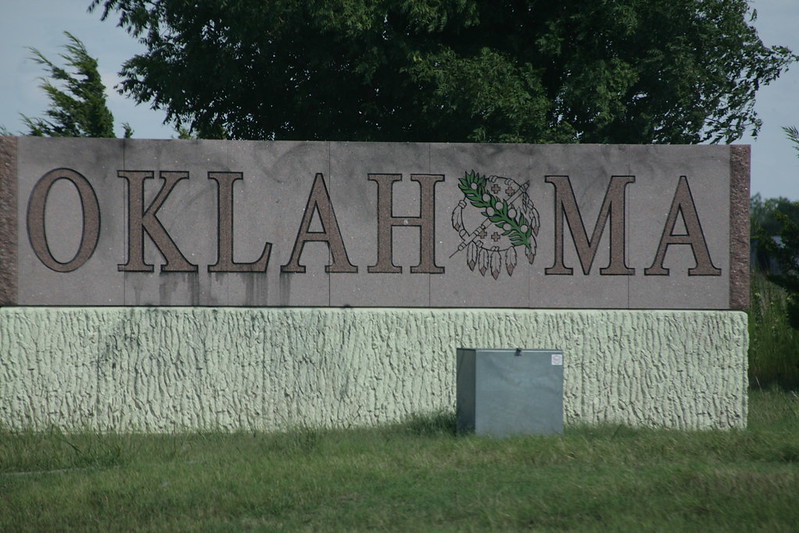Oklahoma voters rejected a ballot initiative that would have legalized marijuana for adult use in the state on March 7.
For most counties, the cannabis reform measure—State Question 820—was the only proposal on the ballot, a unique scenario in the history of the legalization movement.
By the morning of March 8, with 566,000 percent of votes counted (over 99 percent of the total), almost 62 percent were against the measure, with 38 percent in favor.
More than 4,500 people in Oklahoma are arrested annually for cannabis possession.
Advocates had tried to put the reform on the November 2022 ballot, but delays in signature verification by officials and the state Supreme Court’s subsequent decision in litigation meant that it missed the window to qualify for that cycle. In October, Governor Kevin Stitt (R) called a special election on the cannabis measure for March 7.
Statement on Tonight’s #SQ820 Election Results pic.twitter.com/M2bC40R4zq
— Yes on 820 Campaign (@YesOn820) March 8, 2023
The measure would have allowed adults 21 and older to purchase and possess up to 1 ounce of cannabis, and grow up to six mature plants and six seedlings for personal use. The current Oklahoma Medical Marijuana Authority would have been responsible for regulating the program and issuing cannabis business licenses.
A 15 percent excise tax would have been imposed on adult-use marijuana products, with revenue going to an “Oklahoma Marijuana Revenue Trust Fund.”
The funds would have first covered the cost of administrating the program; the rest would have been divided between municipalities where the sales occurred (10 percent), the State Judicial Revolving Fund (10 percent), the general fund (30 percent), public education grants (30 percent) and grants for programs involved in substance use treatment and prevention (20 percent).
People in prison for activity made legal under the measure would have had the ability to “file a petition for resentencing, reversal of conviction and dismissal of case, or modification of judgment and sentence.” Those who’d already served their sentence for such a conviction could have also petitioned the courts for expungement.
Advocates with the Yes on 820 campaign promoted a new report last week detailing the costs of ongoing cannabis criminalization.
The state’s earlier legalization of medical marijuana already seems to have reduced arrests and prosecutions.
More than 4,500 people in Oklahoma are arrested annually for cannabis possession, according to the analysis from Oklahomans for Criminal Justice Reform, and more than 60,000 people in the state have either cannabis-related convictions or unexpunged dismissals on their records. If SQ 820 had become law, those people could have petitioned the court to clear the records.
The state’s earlier legalization of medical marijuana already seems to have reduced arrests and prosecutions. Since voters passed SQ 788, a 2018 medical marijuana measure, cannabis cases have fallen sharply. The number of people incarcerated on marijuana charges has also declined.
Adult-use legalization was projected to bring the state more than $100 million in new revenue annually, or about $434 million between 2024 and 2028, according to a separate analysis commissioned by the ballot initiative campaign.
Advocates for SQ 820 launched TV ads and a door-knocking campaign to get out the vote ahead of the special election. One ad featured a former police chief detailing the public safety harms of ongoing prohibition.
SQ 820 is the only one of three competing cannabis measures that activists have tried in recent months to qualify for the ballot. In February an advocate for the other two measures—State Questions 818 and 819—encouraged voters to put their support behind SQ 820.
The endorsement rankled other advocates, including those at Oklahomans for Responsible Cannabis Action (ORCA), which worked on the competing state questions. ORCA and some other groups have criticized SQ 820 over various provisions, and for the campaign’s support from out-of-state donors. ORCA’s Jed Green told Marijuana Moment a year ago that he felt the initiative backed by the national New Approach PAC is “just the wrong approach for Oklahoma.”
Stitt, the governor, opposes adult-use legalization, although he did say last year that he thinks the federal government should end cannabis prohibition to “solve a lot of issues from all these different states” that have legalized. He also said last year that he thought Oklahoma voters were misled into approving an earlier medical cannabis legalization initiative in 2018.
State Republican Party leaders and GOP elected officials had also urged voters to reject the adult-use marijuana legalization measure.
Photograph by Jim Hickcox via Flickr/Creative Commons 2.0
This story was originally published by Marijuana Moment, which tracks the politics and policy of cannabis and drugs. Follow Marijuana Moment on Twitter and Facebook, and sign up for its newsletter.





Show Comments